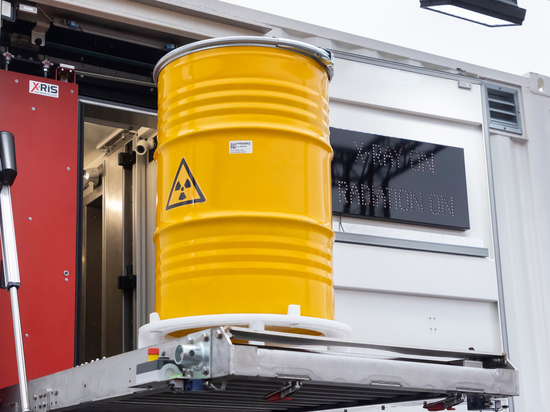Nuclear power plants of the continent are at risk of a shortage of nuclear fuel
The collective West has prepared a new blow to foreign exchange earnings from Russian exports. This time, enriched uranium may fall under the distribution, the EU is going to refuse to supply it from our country. This measure, if put into practice, threatens to halve the income of domestic producers from the sale of radioactive metal abroad. True, it will be quite difficult to find new suppliers to replace Russian western nuclear power plants.

Some European countries that buy Russian enriched uranium for their nuclear power plants, according to Bloomberg, have begun looking for new suppliers in an effort to reduce their dependence on our nuclear fuel. Kazakhstan is considered as an alternative exporter, producing about 40% of the radioactive metal.
At present, the global nuclear industry is 14% dependent on Russia for uranium supplies. According to the Еuratom Supply Agency for the supply of nuclear materials, in 2021 (since 2022 the Federal Customs Service has not disclosed export data), the import of radioactive metal from our country amounted to 20% of the consumption of this type of fuel in the EU. “According to the statistics of the British RUSI Institute, last year the cost of importing nuclear technologies and fuel from Russia exceeded $1 billion,” — says the head of the analytical department of AMarkets Artem Deev.
The refusal of the EU countries from Russian uranium was predicted by independent experts since last year. «Skirmisher» The European demarche, of course, was made by Ukraine, on the territory of which there are several nuclear power plants built back in the days of the Soviet Union. In early spring, Kyiv turned to Berlin with the question: why are there still no economic restrictions imposed on the radioactive metal exported from our country? Vice-Chancellor, Minister for Economic Affairs and Climate Protection of Germany Robert Habek immediately called for sanctions against countries receiving uranium from our country.
Meanwhile, according to experts, the real initiators of the ban on uranium imports, which serve as fuel for generating about 10% of the world's electricity, are most likely Washington. In the last decade, the United States has been able to oust Russian competitors in the oil and gas industry through the development of shale deposits, but so far the Americans have not been able to achieve similar success in the nuclear industry. Problems in the American nuclear industry began in 1993 with the Gora-Chernomyrdin agreement; about reprocessing our high-enriched weapons-grade uranium into low-enriched uranium, which is used to generate electricity in reactors. Russian uranium has been very popular with US utilities that own nuclear power plants. As a result, America abandoned its own uranium enrichment capacity: if in 2010 the US produced about 2 thousand tons of uranium oxide, by 2020 production fell to an insignificant 90 tons. Even despite the tightening of sanctions, the States, until the very last moment, did not hesitate to import the necessary volumes from our companies: in December last year, according to American data, the amount of payments for the supply of enriched uranium from Russia reached $185 million, which was the maximum since November 2016.< /p>
In turn, EU consumers are closely connected with the supply of Russian uranium, not only in terms of volumes, but also from a technological point of view. “There are 18 nuclear power plants in the EU with reactors adapted to fuel from Russia, — argues TeleTrade analyst Vladimir Kovalev. — Replacing our uranium is extremely difficult and very costly. In particular, in the same Ukraine, unsuccessful attempts were made to replace Russian raw materials by the American company Westinghouse. Subsequently, a number of EU countries abandoned such experiments. At the same time, it cannot be denied that Kazakhstan is a leading producer of uranium. The activation of imports from this country can replace the supply of significant volumes of Russian fuel both to Europe and the USA.
Bulat Nigmatullin, director general of the Institute for Energy Problems, notes that the loss of the European market for enriched uranium will be a rather unpleasant surprise for the domestic industry, which could lose up to half of its export earnings. From our raw materials can be power plants in the Czech Republic, Slovakia, Bulgaria and Finland. However, all is not lost: in recent years, the construction of nuclear power plants around the world has accelerated. The most notable increase in capacity has been in China, with 55 reactors in operation, the lion's share of which have been commissioned this century. Another 18 blocks in China are under construction. «The Akkuyu station is being built» on the Mediterranean coast of Turkey and the Rooppur NPP in the Republic of Bangladesh. Russia is capable of redirecting uranium supplies to these facilities, although it will have to wait a bit. It will take 3-4 years to complete their construction, and the final commissioning will take at least 7-8 years, — the expert thinks.


